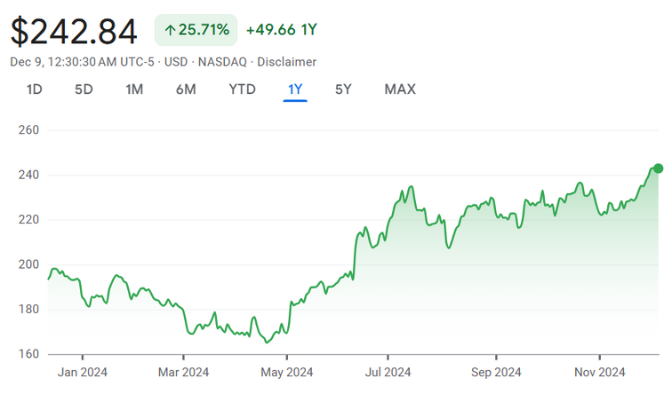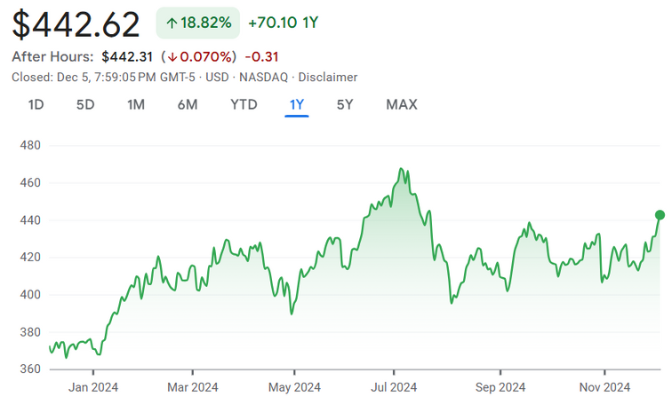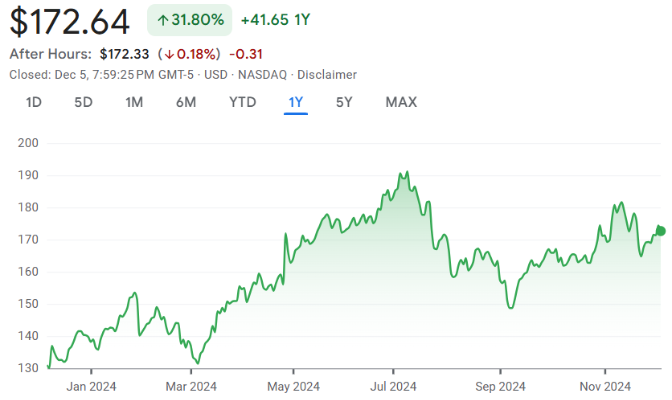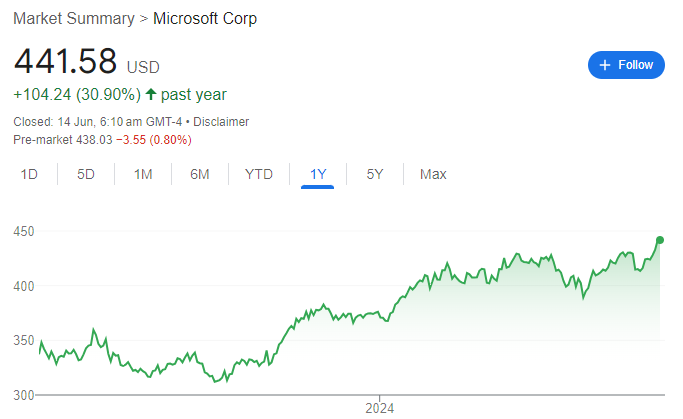Large-cap stocks are one of the rewarding investment strategies, whether for a seasoned or starting investor. Many investors, along with a desire to find companies that represent the best forms of stability and long-term growth, would want the large caps associated with big-name large-cap companies throughout the stock market. Investing in these companies requires consideration of some essential characteristics along with their benefits. Let's talk about all the things you want to know about large-cap stocks, their advantages and disadvantages, and some top picks for 2024-25.
What are large-cap stocks?
Large-cap stocks, also known as big-cap stocks, are shares of companies that have a high market capitalisation. Market capitalisation, or market cap, is the total value of a company's outstanding shares. In general, firms with a market cap over $10 billion are classified as large caps. Such companies are usually well-established with stable revenues and a solid presence in their industries. Large-cap stocks are huge companies with significant market value and size, such as Apple, Microsoft, and BHP Group. The market capitalisations of these companies provide significant security to investors.
Why invest in them?

Stability During Rough Markets
Large-cap stocks are less volatile because they have substantial financial resources and diversified revenue streams. This makes them less volatile than small-cap stocks, making them a safer option for risk-conscious investors.

Reliable Returns
These large-cap stocks may not provide the explosive growth of small-caps, but they are stable and provide long-term returns. They are highly suitable for investors looking for consistent dividends and capital appreciation.

Strong Credibility
Large caps are usually established companies and industry leaders. Their robust business models and track records make them appealing for long-term investments.
Get the Latest Stock Market Insights for Free with
Stocks Down Under & Pitt Street Research
Join our newsletter and receive exclusive insights, market trends, investment tips, and updates delivered directly to your inbox. Don't miss out!
What is large-cap vs small-cap stock?
The equity market includes different-sized companies, and each type has its specific features. Knowing the distinction between large-cap companies and small-cap stocks is vital.
Large-cap stocks symbolise companies with a market capitalisation of more than $10 billion. They exhibit lower volatility and more stable returns in the long run. Large-cap companies are typically the giants of sectors like finance, technology, and healthcare.
Small-cap stocks often represent smaller businesses with a market cap below $300 million. These companies provide higher growth potential but come with greater risk as they often lack the necessary financial resources to withstand economic challenges.
3 Best large-cap shares to Buy Now in 2025

Apple (AAPL)
Apple is one of the large-cap companies that dominate its industry. The company has a market cap of approximately $3.731 trillion as of December 2024 and consistently ranks among the largest and most valuable large-cap companies globally...

Microsoft Corporation
Microsoft is a household name in technology, providing a wide range of services from cloud computing to enterprise software. With a market cap of approximately $3.316 trillion as of December 2024, Microsoft is a leader among blue-chip...

Alphabet Inc
Alphabet is perhaps one of the best representations of how large-cap stocks generally offer stability and strong opportunities for growth. Its lines of business include search engines, cloud computing, advertising, artificial intelligence, and hardware....
3 Best large-cap shares to Buy Now in 2025
Pros & Cons of investing in large-cap funds
Large-cap stocks represent a unique set of advantages and challenges. Understanding these can help investors make informed decisions when allocating their funds to the equity market.
Pros of Large Cap Companies
Large-cap stocks are well established with a history of weathering rough markets. Their substantial financial resources and diversified revenue streams make them reliable even during economic downturns. Many large caps pay regular dividends, providing a stable income source for investors. This is especially appealing for those looking to balance growth with income in their investment portfolios. Compared to small-cap stocks, large caps have lower volatility and are thus more secure for risk-averse investors. Most large-cap funds represent blue-chip companies that have shown strong performance in the stock market.
Cons of Large Cap Companies
While large caps are stable, they tend to have lower growth prospects than small-cap corporations or mid-cap companies, which leaves much room for growth. The share price of large-cap stocks is usually higher, thereby limiting access to such stocks for investors with a small budget. Large-cap companies are also too large and unwieldy to be responsive to changes in market trends compared to smaller, nimbler companies.
How to Choose the Right Large Cap Stocks to Buy?
Picking the right large-cap stocks is a strategic process that requires careful analysis and foresight. Here are some essential steps to guide you:
There must be thorough independent research performed. Analyze the financial resources of the company, historical performance, and strategies for growth. The big-cap companies that have steadily delivered stable returns and maintain strong fundamentals are in focus. Trends in the stock market and specific sectors need to be watched. Large-cap stocks tend to work out well in industries like technology, healthcare, and energy. Knowing these trends gives a sense of which direction can be aligned with future growth. Although large caps are relatively safer, they do not completely exclude risk. Review your risk tolerance and adjust your selections in line with your objectives for your finances. Cap stocks can also differ in risk even if categorized similarly.
A diversified portfolio reduces risk and enhances the potential for returns. Including a mix of large caps, mid-cap companies, and even some small caps ensures balanced exposure across different asset classes. Focus on the market cap of the companies you’re considering. A high market cap, coupled with strong financials, indicates a company’s ability to withstand economic challenges. Analyze metrics such as revenue, profit margins, and outstanding shares to secure stability. If you're unsure, consider consulting experts or investing in large-cap funds, which pool resources to invest in the most promising large-cap stocks.
Are Large Cap Stocks a Good Investment?
Yes, large-cap stocks are an excellent choice for most investors, particularly those seeking a balance between stability and returns. Here’s why they remain a favourite in the equity market:
Large caps are established companies with robust business models and long histories of success. They dominate their respective industries, ensuring investors a sense of comfort. Large-cap stocks perform significantly well in a rough market due to their strong financial resources and diversified revenue streams. This makes them more reliable during economic volatility. Large-cap stocks, therefore, form the cornerstone of any investment portfolio aimed at long-term goals. They provide the stability required to offset risks associated with small-cap stocks or more volatile asset classes. Most large-cap companies pay dividends, thus providing another avenue for income. This is especially useful when developing a passive source of income while building core portfolio investments.
FAQs on Large Caps Stocks
A large-cap stock is defined as having a market capitalisation of $10 billion or more. This is calculated by multiplying the company's shares outstanding by its share price.
Our Analysis on Large Cap Stocks
Phosco (ASX:PHO): Potential to deliver 67.6Mt of phosphate over nearly 5 decades!
Phosco (ASX:PHO) is bringing its Gasaat phosphate project in Tunisia online. The need for sources of fertilisers like phosphate are…
Here are 6 stocks that got promoted in the ASX quarterly rebalance, and 6 that got demoted
On Monday December 22, the ASX quarterly rebalance will be effective. Stocks will be promoted into new indices, while others…
Step One (ASX: STP) Shares Plunge 35% on Profit Warning! Is it Back to Square One?
Step One Falls Flat Step One (ASX: STP) experienced a heavy re-rating today, falling 35% in a single session. That…
Bubs Australia (ASX:BUB): One of the few infant formula stocks building a post-China future
Bubs Australia (ASX:BUB) just might have a future beyond China. After the pandemic shut down the infant formula trade, companies…
2026 ASX IPOs: Here are 5 candidate companies to look out for!
The pipeline of 2026 ASX IPOs is arguably the most promising since the pandemic. Lower interest rates, a slowdown in…
This Phase 2 ASX Biotech stock is only at cash backing, but has enormous upside!
Phase 2 Biotech stocks on ASX tend to be capitalised at $40-110m, but Percheron Therapeutics (ASX:PER) is only at cash…







